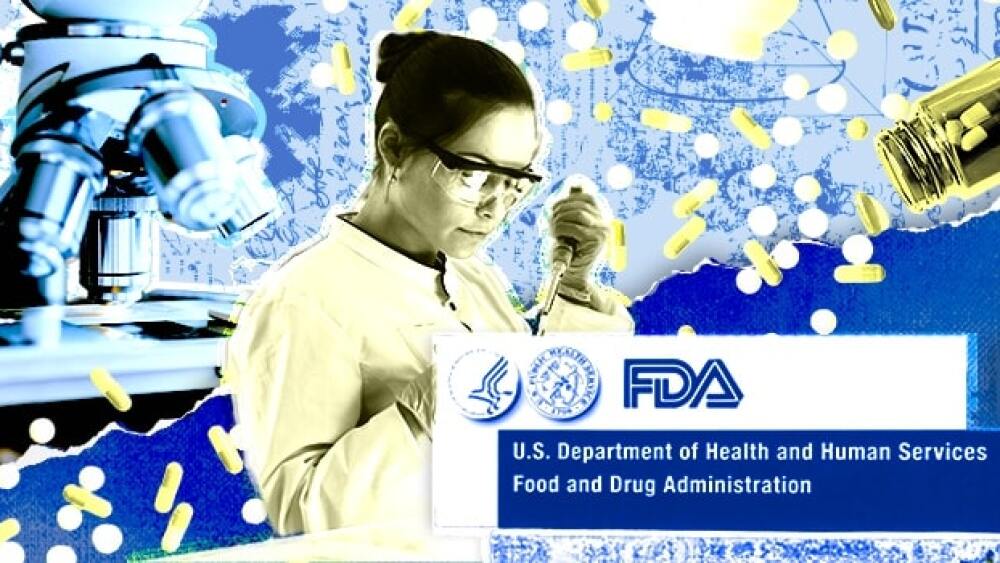The COVID-19 pandemic changed the biopharma industry and the world irrevocably. The challenges will reverberate even after the pandemic ends, according to panelists at the Cell and Gene Meeting on the Mesa in mid-October.
The COVID-19 pandemic changed the biopharma industry and the world irrevocably. The challenges will reverberate even after the pandemic ends, according to panelists at the Cell and Gene Meeting on the Mesa in mid-October.
The U.S. Food and Drug Administration (FDA), for its part, is still backlogged. As Wilson W. Bryan, M.D., director, Office of Tissues and Advanced Therapies, Center for Biologics Evaluation and Research (CBER), said, “We’re seeing a flood of applications related to many different therapies. We’ve had to delay meetings and some reviews to give priority to the pandemic (products). We’re just now regaining some balance, but it will take us months to catch up.”
During the height of the pandemic, many clinical trials were put on hold and others had difficulty resupplying therapeutics and performing the required tests despite patient concerns of going to a healthcare facility.
“That created gaps. The question now is how companies, regulators, and clinical trial consultants will treat those gaps,” said Tim Schroeder, founder and CEO, CTI Clinical Trial & Consulting.
Even now, Curran Simpson, chief operations and technology officer, REGENXBIO added, “The labs we work with – and our own, internal labs – are running at 50% capacity. That leads to clinical and reporting delays, but clinical trial sites are open.”
During the height of the lockdowns, REGENXBIO reevaluated the way it conducted clinical trials. As a result, it began providing the necessary surgical training for its clinical trial partners via video.
“Some of these new ways will continue, because they are more efficient,” Simpson said.
Looking forward, one of the persistent challenges is manufacturing capacity.
“It seems to be evaporating quickly,” Simpson said, as manufacturers scramble to produce COVID-19 products in addition to the other therapeutics, vaccines, and diagnostics that still are needed.
This will affect smaller companies more than larger ones, he predicted. Larger companies, though, face the challenges of moving active pharmaceutical ingredients (APIs) and products internationally.
Despite these challenges, some positive things are emerging from the pandemic.
“We’re seeing an emphasis on alternative ways of caring,” said Amy DuRoss, co-founder and CEO of Vineti. “Adoption of telehealth and electronic systems has increased.”
As that happens, “We must develop and validate new measures of outcomes that can be captured remotely,” Bryan said. That will be particularly beneficial for the rare and disabling disease spaces, where it’s often difficult for patients to make clinical visits.
Bryan also said he sees an increase in clinical trials for exosomes and other cellular-derived products that previously were administered without FDA approval or scientific evidence of efficacy.
“Now some of those companies are coming forward to conduct randomized placebo-controlled trials to see if their therapies can treat COVID in the hospital.
“Once we get through the second wave of the pandemic, we need to know what works,” he continued. “You get that only through good research. It’s good to see companies stepping up.”
Another big plus is the enormous level of investor interest. The industry raised $12.7 billion in Series A venture funds during the first half of 2020. “That’s more than all of 2019 combined,” DuRoss said. “More than 1,000 companies are working in this space, and new investors are being drawn in as the mechanisms of action are activated in accordance to Moore’s law.” (Moore’s Law, first stated in 1975 in regard to microchips, says the number of transistors on a microchip doubles and the costs halve every two years.)
Looking forward, however, Anthony Davies, Ph.D., founder and CEO, Dark Horse Consulting, and chair of this session, predicted a global recession.
“The global financial engine had a good thumping in the past six months. At some point there will be less money sloshing around,” Davies said. This may not affect the next round of financing, but “people should be a bit concerned about the round after that.”
Simpson agreed.
“If you are good at managing capital and focusing investments on programs that are the most valuable to patients and investors, there will be some forgiveness on timelines (missed milestones) because of COVID-19, but as things return to normal, there will be less leeway,” Simpson said. “Companies are rethinking their portfolios and investors are more careful.”
That said, big pharma’s appetite for biotech is very strong.
The panelists advised companies to evaluate their drug development programs critically.
“Many companies used COVID-19 as an opportunity to raise money,” Schroeder said. They developed products outside of their main product area. “Now you have to wonder how much they’ll be penalized for jumping in, rather than focusing on their original mission.”
Global collaboration is another widely heralded boon, panelists agreed.
For the FDA, it means additional inspections, but on-site visits aren’t necessarily possible.
“We just started doing domestic inspections,” Bryan said, and haven’t yet resumed international inspections. “Some products have been delayed because the inspections couldn’t be done.
“We’re considering virtual inspections, especially if the site has a good track record,” he continued.
That possibility hinges upon having an established track record with the FDA and impeccable documentation, panelists agreed. It’s not always easy.
“Getting access to electronic health records was challenging, even at prestigious institutions,” Schroeder said. “They had to develop processes on-the-fly to enable that. So, the new normal likely will be a combination of on-site and remote meetings and inspections,” he predicted.






